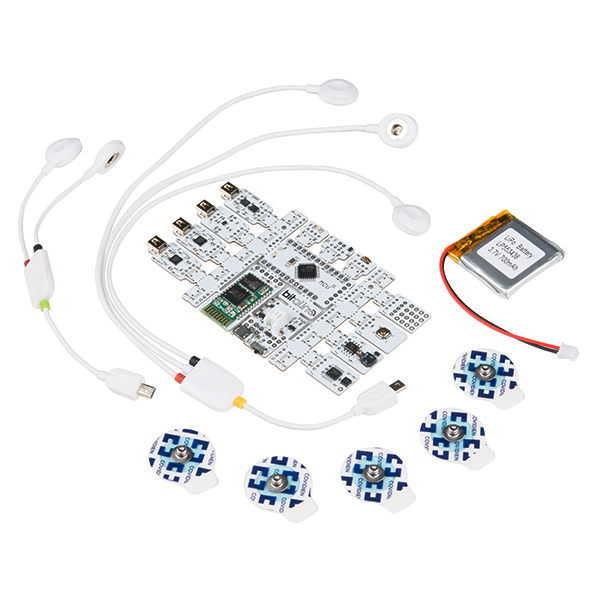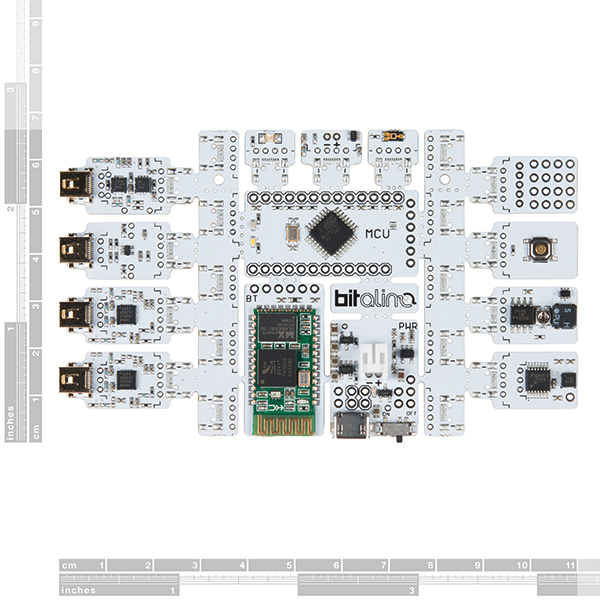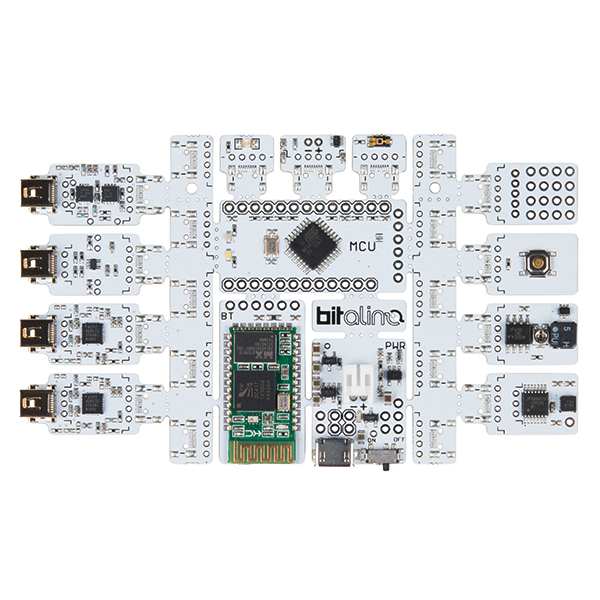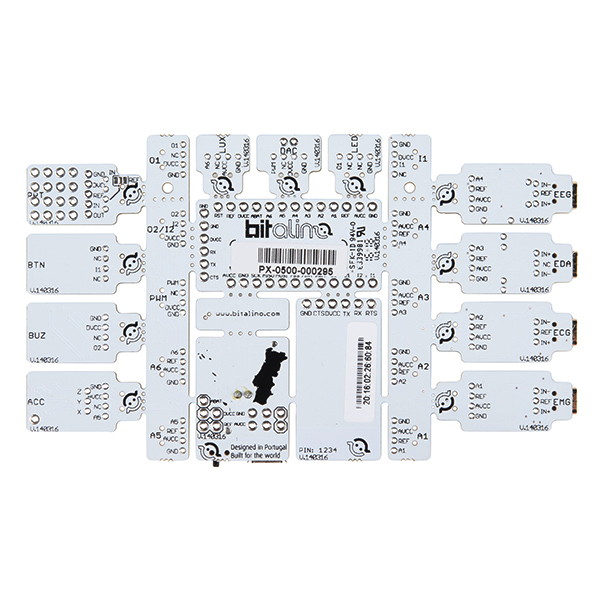BITalino (r)evolution Board Kit
This is the BITalino ( r )evolution Board Kit, a (comparatively) low-cost biomedical data acquisition dev board that allows you to create projects using physiological sensors and tools. Each BITalino is presented in a "ProtoSnap style," enabling it to be programmed as a whole board or snapped apart for use in future projects. This dev board also has no shortage of programming APIs, which include Arduino, Python, Java, Android, iOS and more.
The BITalino is equipped with 14 removable "blocks," which can be used straight out of the box and include an MCU, Bluetooth, Power, Prototyping, EMG, EDA, ECG, EEG, Accelerometer, LED, Button, Buzzer, DAC and Light Sensor! At the heart of this dev board is the tried and true ATMega328 microcontroller, which can be configured with a sampling rate up to 1,000Hz and is capable of supporting six analog inputs (four at 10-bit, two at 6-bit), as well as four digital input and four digital output pins. With the attached HC-06 Bluetooth module, triaxial MEMS accelerometer and physiological sensor inputs, you will find it difficult to run out of ideas for projects.
In the Documents section below you will will find a link for OpenSignals, software that empowers your BITalino. OpenSignals allows you to play back your previously recorded sessions and zoom in and out of specific periods, plug in architecture available for future optional add-ons to help you analyze your signals, customize transfer function definitions and more.
Note: The BITalino only communicates via Bluetooth with your computer.
Note: Due to the requirements of shipping the battery in this kit, orders may take longer to process and therefore do not qualify for same-day shipping. Additionally, these batteries cannot be shipped via Ground or Economy methods to Alaska or Hawaii. Sorry for any inconvenience this may cause.
Included on the Board:
- Microcontroller Block (MCU)
- Power Block (PWR)
- Prototyping Block (PRT)
- Electromyography Block (EMG)
- Electrodermal Activity Block (EDA)
- Electrocardiogram Block (ECG)
- Electroencephalography Block (EEG)
- Light Block (LUX)
- Accelerometer Block (ACC)
- Pushbutton Block (BTN)
- Bluetooth Block (BT)
- Light-Emitting Diode Block (LED)
- Buzzer (BUZ)
- Digital-to-Analog Converter (DAC)
- 1x BITalino board
- 1x 3-lead accessory (for EMG/ECG/EEG)
- 1x 2-lead accessory (for EDA)
- 5x Pre-gelled electrodes
- 1x LiPo battery (3.7V, 500mAh)
- Datasheets
- OpenSignals
- Product Page
- GitHub (Application Example Code)
BITalino (r)evolution Board Kit Product Help and Resources
Core Skill: Soldering
This skill defines how difficult the soldering is on a particular product. It might be a couple simple solder joints, or require special reflow tools.
Skill Level: Noob - Some basic soldering is required, but it is limited to a just a few pins, basic through-hole soldering, and couple (if any) polarized components. A basic soldering iron is all you should need.
See all skill levels
Core Skill: Programming
If a board needs code or communicates somehow, you're going to need to know how to program or interface with it. The programming skill is all about communication and code.
Skill Level: Competent - The toolchain for programming is a bit more complex and will examples may not be explicitly provided for you. You will be required to have a fundamental knowledge of programming and be required to provide your own code. You may need to modify existing libraries or code to work with your specific hardware. Sensor and hardware interfaces will be SPI or I2C.
See all skill levels
Core Skill: Electrical Prototyping
If it requires power, you need to know how much, what all the pins do, and how to hook it up. You may need to reference datasheets, schematics, and know the ins and outs of electronics.
Skill Level: Competent - You will be required to reference a datasheet or schematic to know how to use a component. Your knowledge of a datasheet will only require basic features like power requirements, pinouts, or communications type. Also, you may need a power supply that?s greater than 12V or more than 1A worth of current.
See all skill levels
Comments
Looking for answers to technical questions?
We welcome your comments and suggestions below. However, if you are looking for solutions to technical questions please see our Technical Assistance page.
Customer Reviews
No reviews yet.




